My DP playmate’s name is Anusch, and her recent story begins on November 25, 2022, with an email I received from the assistant editor of the Armenian Weekly, Ms. Leeza Arakelian. Part of the email from the assistant editor reads: “…Please see this note below from a Sarah Thiel…An amazing connection…!”
The writer had written: “We are writing to you from Europe—Germany—with a special request. Through a search on Displaced Persons (DPs)…we heard about DPs in the U.S…. We could not believe our eyes when reading and scrolling through the pages written by your long-time author Knarik O. Meneshian to suddenly see my Armenian grandfather in two of the published pictures on your site! He was one of the Armenians chosen but unable to emigrate to the U.S., as he did not pass the health screening. My grandfather was Knarik’s parents’ best man and always stated that he was proud of it. You can see it in the photo—the man seated in front of the wedding couple. When reading the article, my half-Armenian mother immediately noticed the author’s name. She stated that there was a little girl, her first friend in the camp, who was called Knarik…and compared our own photos with the ones published. We could not believe it! After 72 years, she found her first playmate again! Knarik’s content and history, i.e., the camps in Klagenfurt (Austria) and Stuttgart (Germany), square with Mum’s early life…” (See the June 17, 2016, online article, published in The Armenian Weekly, titled “A Glimpse Into The Life Of The Armenian DPs In Europe”).
Sarah Thiel
(Daughter of Anusch)
Shortly after receiving the email from Ms. Arakelian, I received a phone call from Anusch. We talked and talked and talked. It was as if we had been close friends all these many years, since the age of two—as if we had never been apart. We discovered that our interests were similar, especially in regards to all things Armenian. We both pray the “Hayr Mer” (Our Father) every night. We are both involved in our Armenian communities, though where Anusch lives, near Dachau in Germany, there is no Armenian church. A visiting Armenian priest comes to perform mass once a month at a rented facility for Armenians in the area. Though Anusch’s mother was German and my mother was Austrian, both our fathers were Armenian.
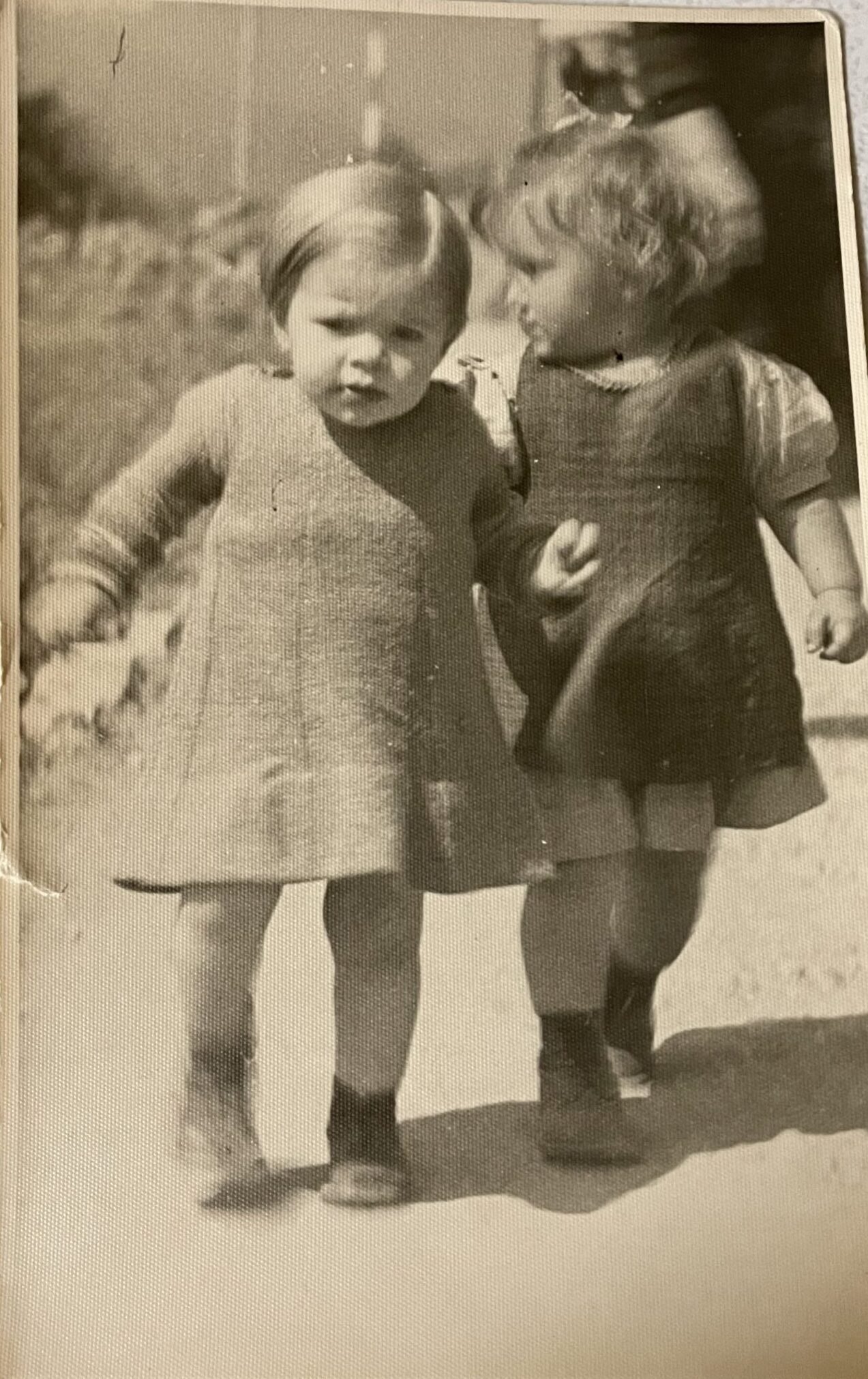
We playmates of long ago—another lifetime—amidst the aftermath and rubble of war; the destruction of life, land, homes and dreams; the displacement of families and children; the hunger, the cold, the heat, the illness and worse; the deprivations, despair, fear and hopelessness, we two little girls of the Klagenfurt, Austria, Waidmannsdorf Lager C DP Camp, Armenian section, played and giggled as only children can. Because of the extreme hardships and loss that befell the people before and during those gray and grim days, there were a few that ended their lives because they could endure no more. There were also those, despite their plight, who kept hope for better days glowing like warm embers deep in their hearts. After our lengthy phone conversation, I felt that Anusch and I were truly kindred spirits.
That evening, after we wished each other a good night, I was filled with excitement. Memories of long ago kept me up until nearly dawn, especially a certain one. I had asked my parents one day, after looking at the photos in our photo album and pointing to the photo of Anusch and me, where my playmate was. They had responded wistfully, my mother in German and my father in Armenian, “We don’t know…”
Not long after that unforgettable phone call, I received a card from Anusch, a friendship card. It was in German and dated 4 December 2022. As I read it, I was reminded of my mother, who often spoke German to us, at times flavoring it with a little Armenian and English. Pictured on the front of the card was a tree with two little girls standing on each side of it that read: “Real good friends are hard to find, hard to leave, and not to forget!” Inside the card, Anusch had written: “My dear Knarik…my thoughts and feelings are with you since we found each other…There is this deep Armenian connection with you, almost as if there is hardly any border between us… I purchased your book, A Place Called Gyumri – Life in the Armenian Mountains, and I love reading it—many things seem familiar, even with me not speaking Armenian. I am so thrilled that we found each other after all these years… It seems like a miracle… As I mentioned on the phone, it is all God-given…You should know that my thoughts are with you from now on. As long as I live, my feelings are with you… Anusch”
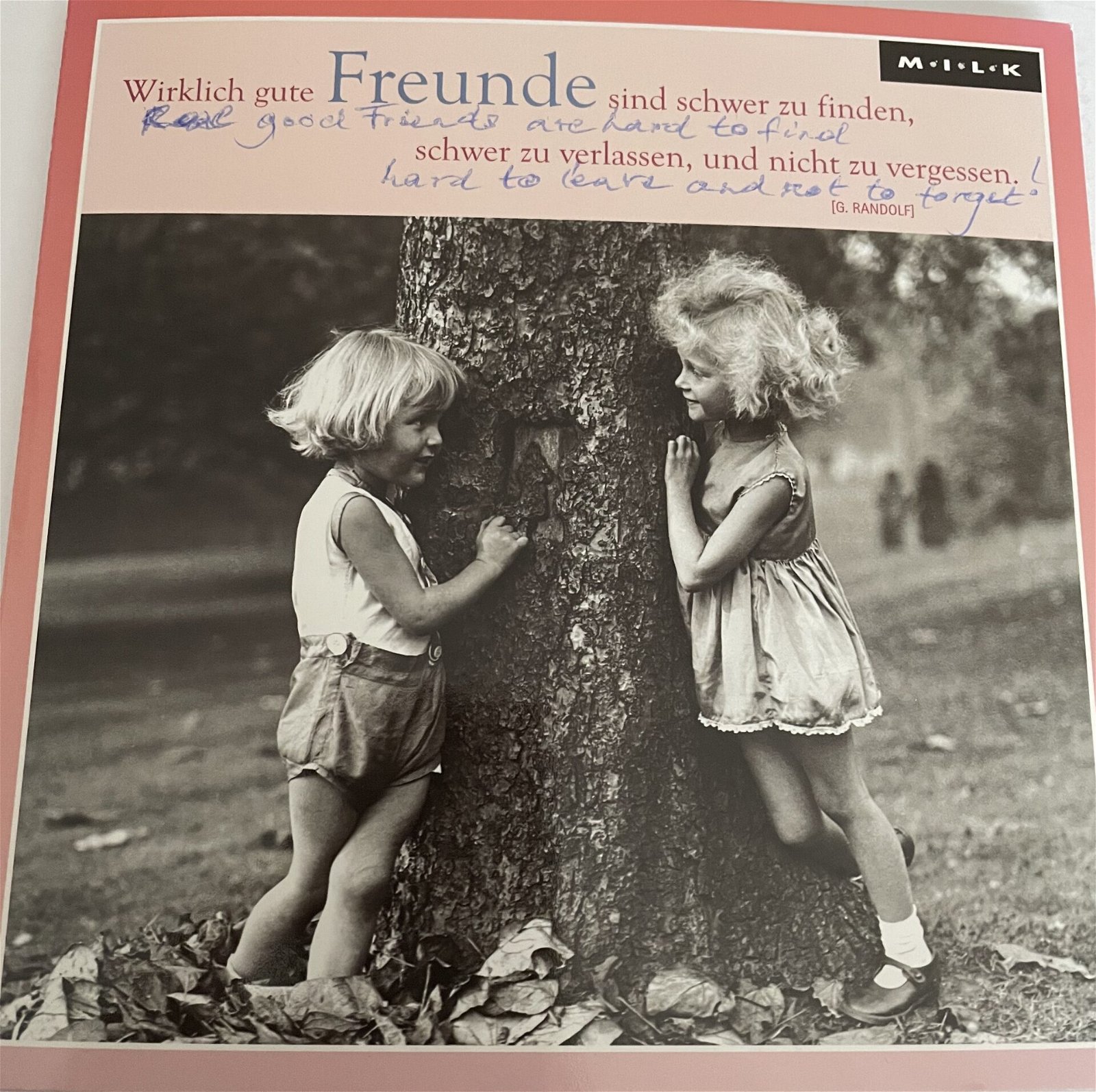
Along with her card and photos, Anusch Krmadjian Thiel sent me two pieces she had written titled “The Story of an Armenian Family in a German DP Camp,” and “Transports for DP Children from camps in Germany for Recovery and Education.” The following are segments from her first story:
“On 20 May 1905, our father, Malchas Krmadjian, was born in a high mountain village in the Caucasus. In the year 1918, at the end of World War I, Turkish hordes destroyed the region and killed most of his family. A few years later, the rest of his family was robbed of most of their possessions by the Communists, and their farm was turned into a Kolkhoz (A collective farm in the former Soviet Union).
“Three years before World War II started, our dad, who was a father of 10 children, the supporter of his big family, and a patriotic Armenian, was forced to join the Soviet Army. In 1941, during the War, he was captured by the Germans and given an ultimatum—either to be imprisoned in a concentration camp or to fight for the Germans. He decided on the latter, thinking of his family back home…
“After having been badly wounded in 1944, he was sent to a military hospital in Hamburg, where he touched German soil for the first time… On 8 May 1945, the day the war ended, was the worst day of our father’s life—almost a death sentence. The German Commandants forced him to burn all his belongings—his passport, family photographs, Armenian books and even his jacket…All he was left with was a small Virgin Mary, which his mother had given to him on his way to war to keep him safe. A return to his Armenian home would have meant a definite journey to death. There, he, who had first been a Soviet and later a German soldier, was considered a traitor. The family back home that he had was, therefore, lost forever.
“After an escape from Slovenia over the mountains, his new life in a DP camp in Klagenfurt, Austria, began. Klagenfurt was under British occupation. He had to do hard work as a stoker at night. During this time, he met my mother, Margret, who, together with her parents and little sister had fled the Nazis. They married in 1947 and planned to emigrate to the USA. Their first three children—Anusch, Arshak, and Georg were later born.
“In 1949, a journey to Munich in Germany, and into an army barracks, was necessary to complete emigration formalities. Due to my father’s illness, their emigration was rejected. To our parents, this was a major blow… Also, in the army barracks, they had to share one room with four families. They were supported by UNRA (United Nations Relief and Rehabilitation Administration) and later, IRO (International Refugee Organization).
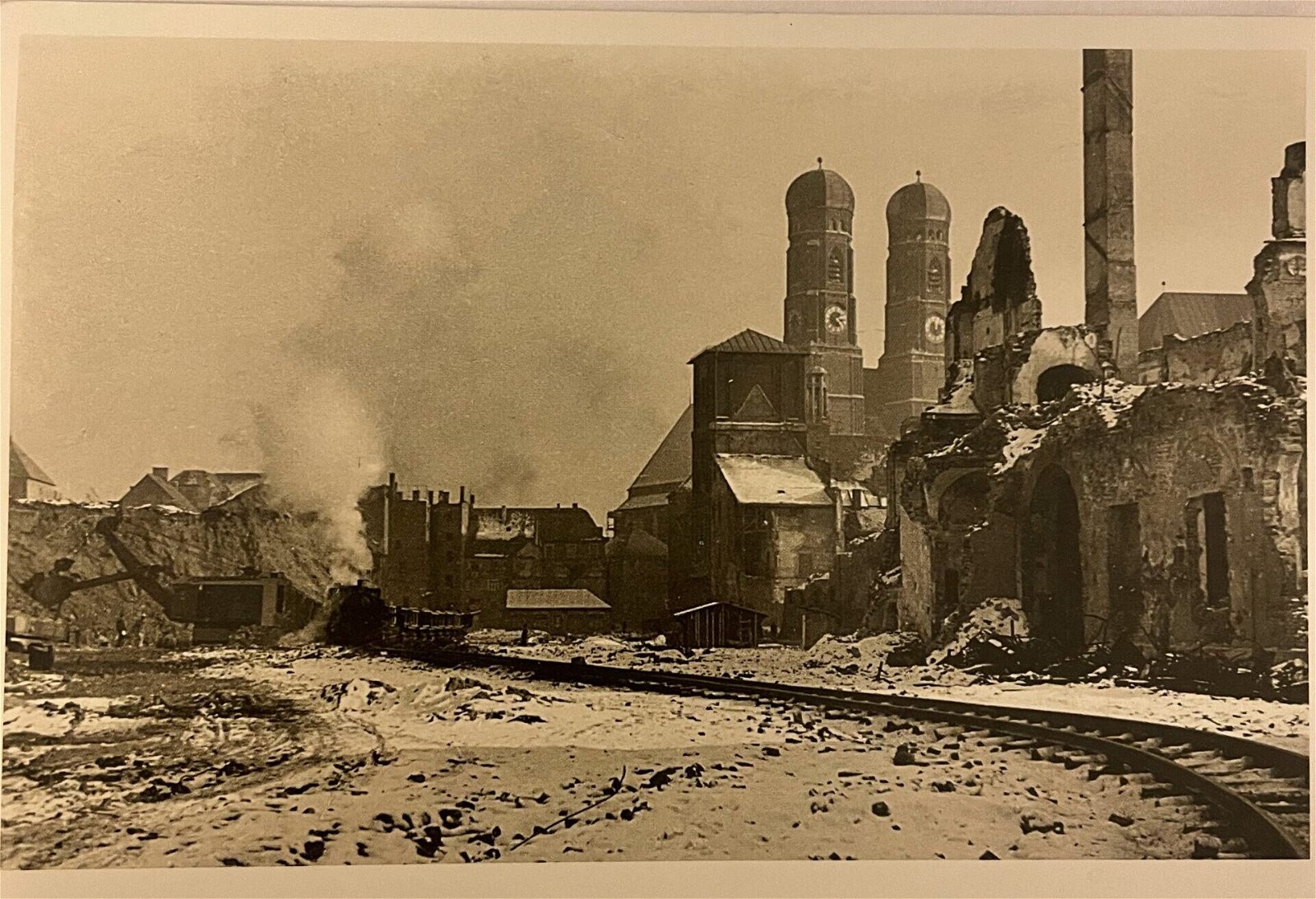
“Shortly after the birth of their fourth child…our parents had to move into a huge wooden barrack, hardcore DP Camp. There, they had reached their lowest point of devastation. After their 5th child was born, they felt there was no future for them, no prospects whatsoever, and no work. The very small government money they received made them feel embarrassed. Their despair was unbearable. They lived in extreme poverty and were forced to put three of their children into foster care, and later adoption…
“After a time, there was a slightly better outlook for them… At last, there was a chance of getting a three-room flat with a separate toilet. What a blessing! …Our parents finally had a home, with permission from the authorities, to live there for good. Later, child six, followed by child seven, and then eight were born…
“After a very hard and deprived life, long illness and the unquenchable sorrow over his lost first family back home in Armenia, our father died in 1966… Our mother, in poor health and full of disappointment, lived with our youngest brother until her death in 1992. Our youngest brother still lives in the flat to this day.
“Some of our brothers and sisters are spread over different parts of the world. The others still live in Ludwigsfeld. They are now all united and represent five different nationalities. Our father’s greatest wish, never to become a soldier, no matter for which nation, has after all come true!”
………………………………………….
The second of Anusch’s stories, a brief account of the life of DP children, begins:
“A couple of years after World War II, DP children from all over Germany were sent to other European countries. Institutions like Caritas, Lutheran Missions, the Quakers, Swiss Welfare Institutes, and especially the Tolstoy Foundation supported this. The children were sent to countries like Belgium, Great Britain, Holland, Norway, and Switzerland. They mainly offered 6-week and 3-month recovery stays. In the years between 1954 and 1957, I was sent to Switzerland by the school doctors to recover from malnutrition…I quickly adjusted to Switzerland and learned to speak the Swiss dialect…
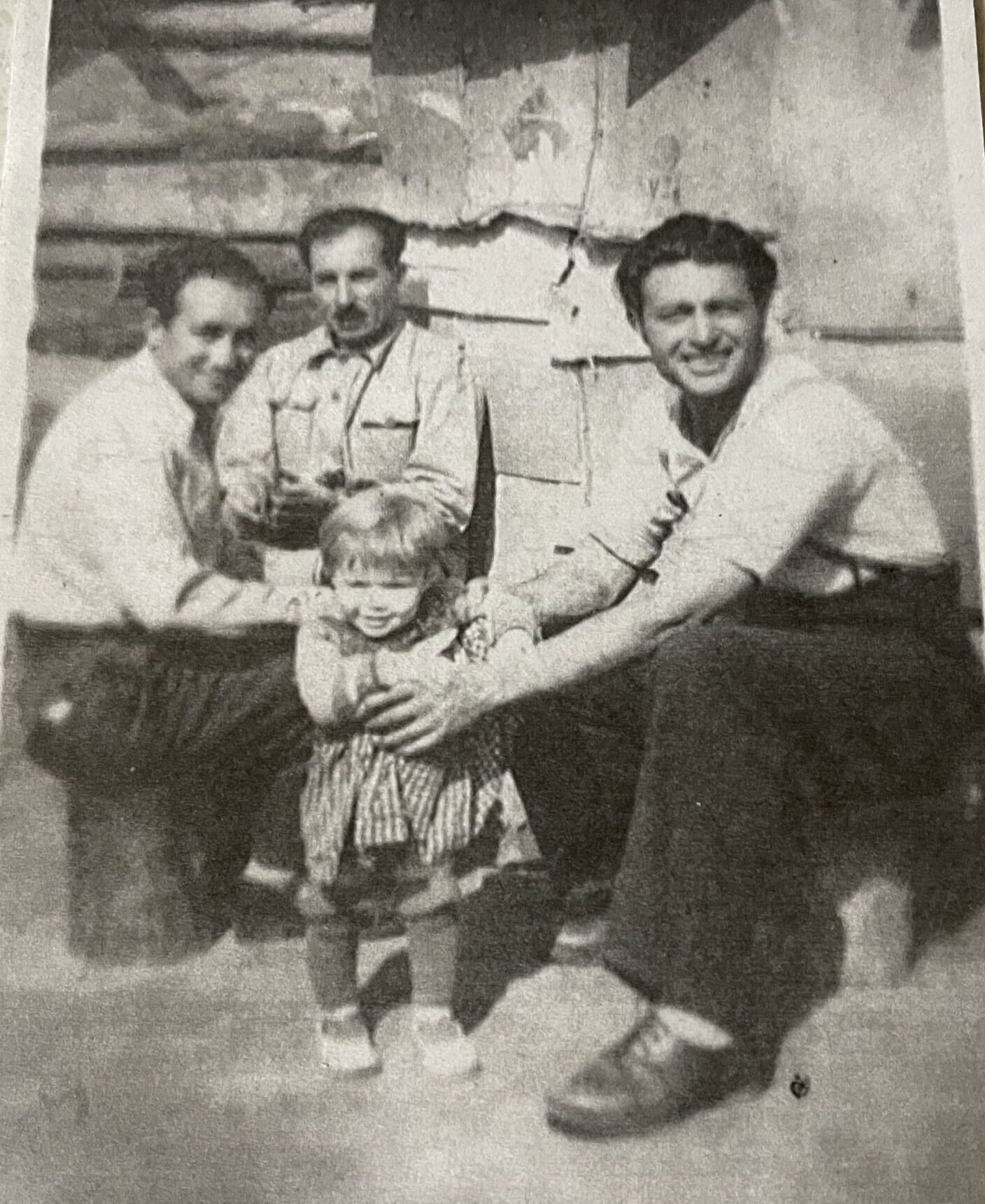
“From the late 1950s to the early 1960s, offers of an education in Great Britain were made to us by the Tolstoy Foundation. (‘The Tolstoy Foundation is a non-profit charitable and philanthropic organization. It was established on April 26, 1939…’) This is how my two brothers Arshak and Georg and I were chosen to go to England. In February 1961, we arrived at the Pestalozzi Village in Sussex. (‘Pestalozzi is an international charity organization based in Sedlescombe, East Sussex… In the aftermath of World War II, hundreds of European children were orphaned and living in refugee camps. The first Pestalozzi Village was founded in Switzerland to offer these children a home and an education.’)
“The English education and long-term stay…have left an immense impression on us and widened our horizon… Our former house-parents, teachers and many Pestalozzi children are still in touch with each other. We, who live abroad, still have a very strong bond with England. We are so grateful for having had such a chance.”
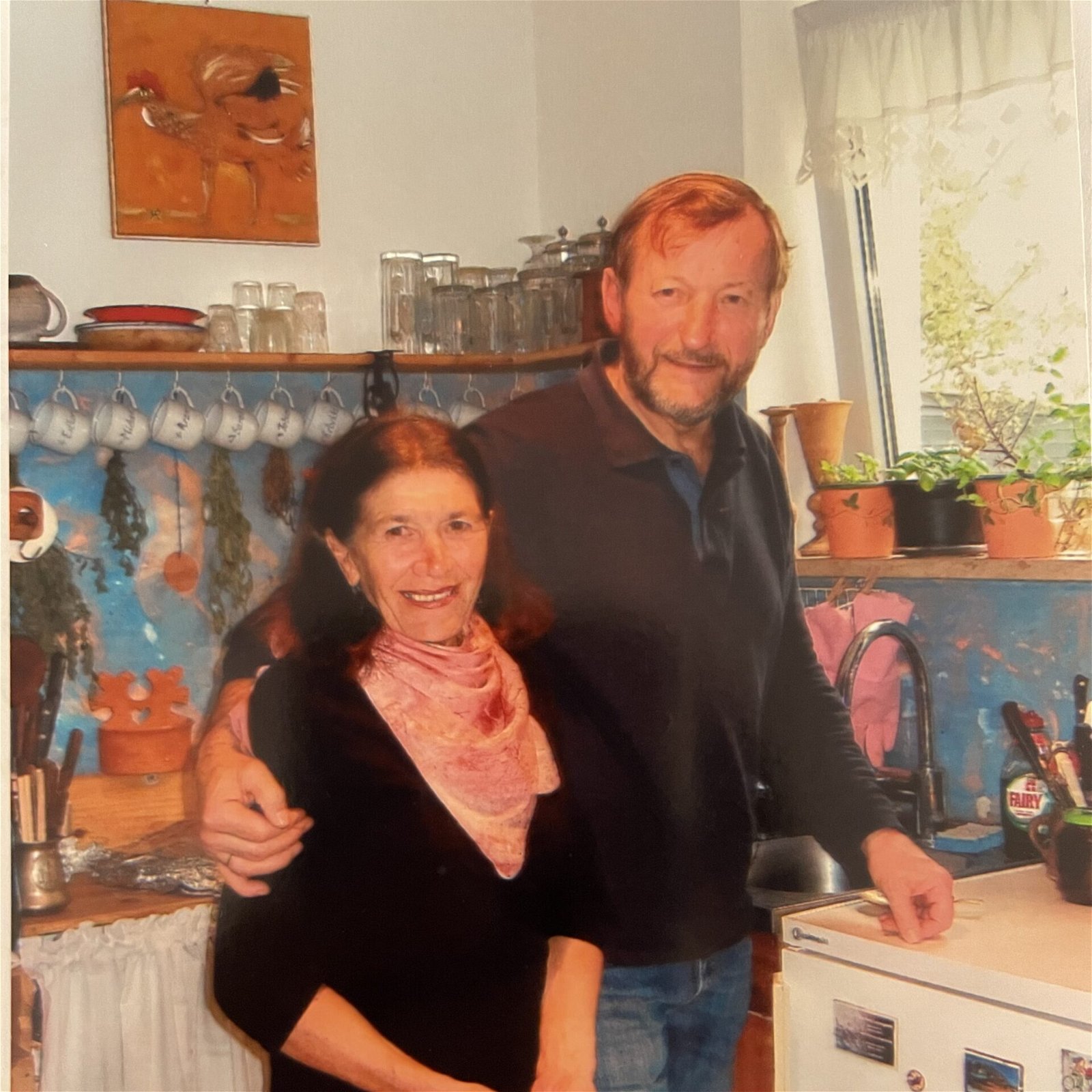
…………………………………….
After having read Anusch’s two stories, I was reminded of the stories my parents told me about our lives in the DP camps in Europe. Our first one was in Austria, where my mother, my POW father and slave laborer, and I called the Klagenfurt DP Camp “home.” I did not always live with them because of the difficult living conditions at the camp, but mostly because of Hitler’s order, according to my parents, that only those who worked received food rations. Since babies and young children could not work, they, therefore, received no food rations. Learning of my parents’ hardships in supporting a child, a kind Austrian family took me into their home, where I was cared for like their own child. There, I had enough food to eat and clothes and shoes to wear.
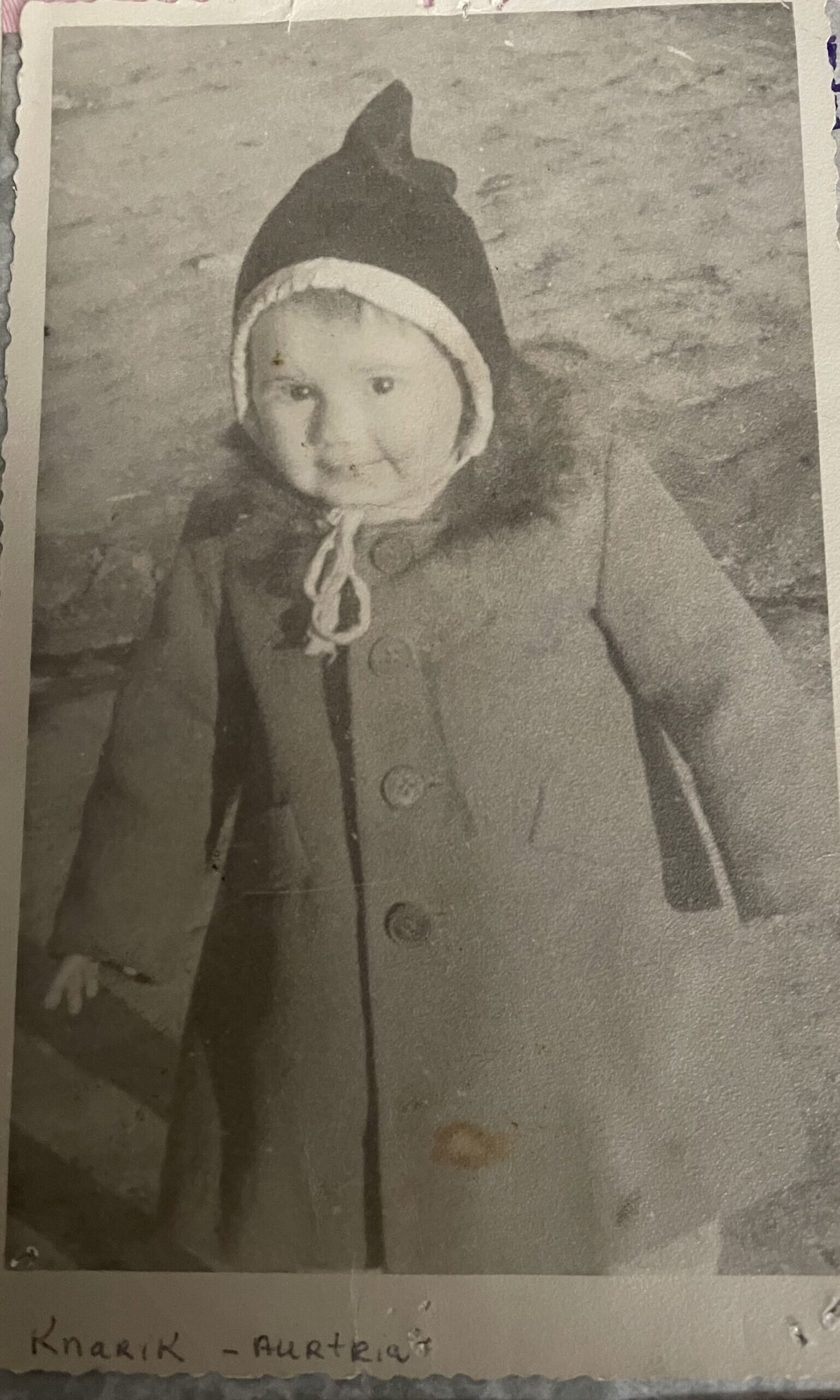
Our next “home” was France, where my parents were to work, and I was placed with a French family on the outskirts of Marseilles. They were farmers. After some time had passed, my parents were finally able to pick me up to take us to our next “home,” another DP Camp in Germany. When they arrived at the farm, I did not know who the two teary-eyed and smiling strangers standing before me were. When they spoke, I did not understand them, since I no longer spoke Armenian and German, and they did not speak French. At the DP camp in Germany, I was again placed with a family, this time a German one. They too were kind, and though I have no photos of them or of the other two families who cared for me, I have a letter from the German family. They lived in Stuttgart, Germany. It is addressed to my parents, written in German, and dated 22 December 1956, just a few years after we were brought to the USA by the American National Committee to Aid Homeless Armenians (ANCHA). The letter describes the family’s daily life in Germany, how their family is doing, what grades their children are in and asks how we are doing in our new home in America. The young mother ends her letter with the words: “Kisses for my little Knarik.”
—Family Schlayer
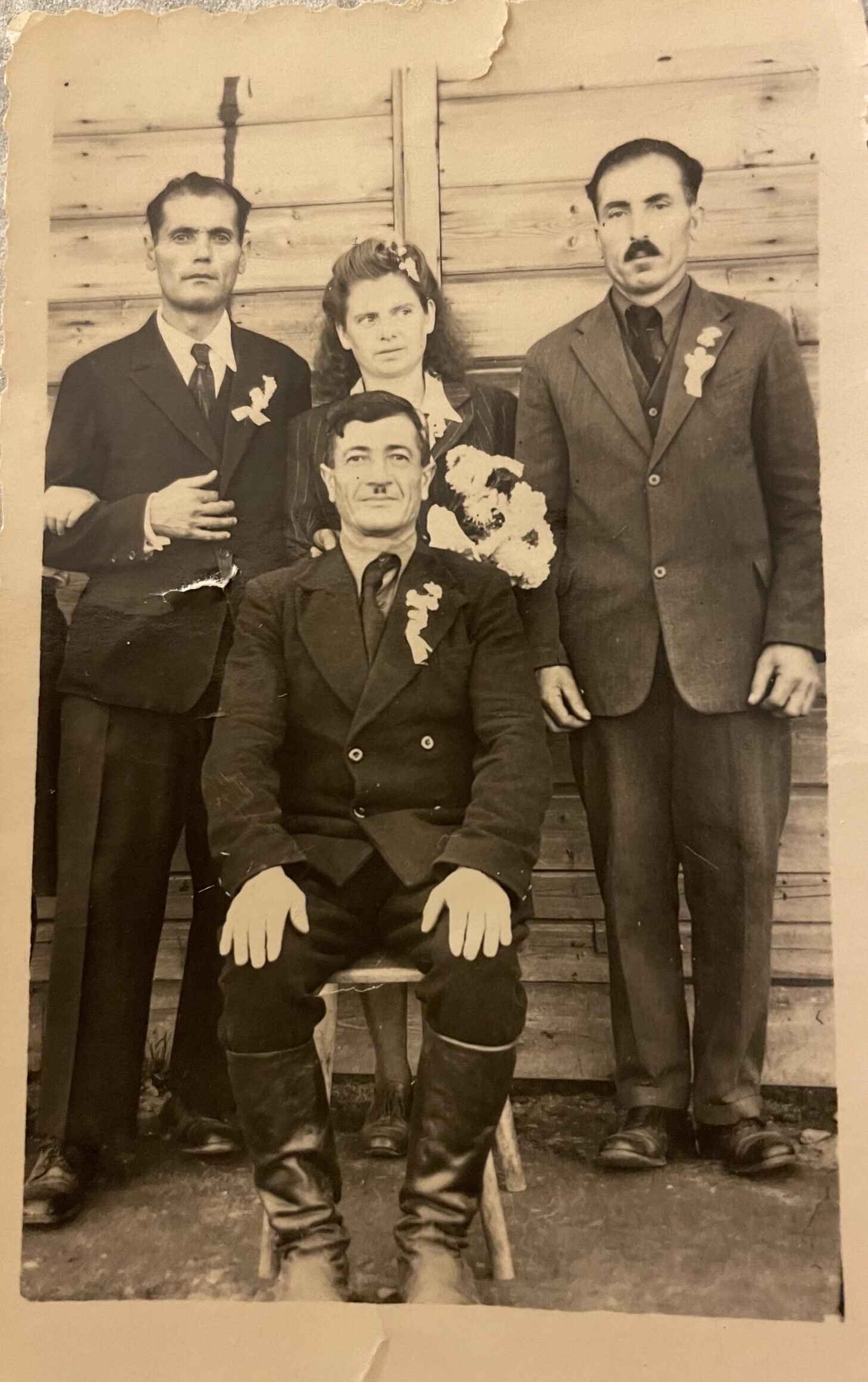
…………………….
The selflessness of the families who took babies and children into their homes and lovingly cared for them during the difficult years after WWII, when life was bleak for so many, and the organizations that helped care for the numerous unfortunate children and families, shall always be remembered by those who were blessed to be touched by their kind and magnanimous hearts.


this is such a heart warming story of our brothers and sisters. As Armenians we survived life’s trying times. I must tell myself: It was not our fault. Even today it is not our fault that our people are being targeted again… I love you my people wherever you are.
This is a sad yet fascinating tale of the troubles and toils of humanity caused by unjustifiable historical events, yet it is also a tale of the human bonding during hardships that last forever. Congratulations once again to Knarik Meneshian in recounting the sad chapters of her life and those that were part of her childhood with such eloquent literary style!
This is beautifully written, and mirrors my own father’s story as a Russian officer, being captured and forced into the Armenische Division to fight for Germany. As the war ended, he was again in A POW camp and everyone awoke one morning to find all the German guards gone. Like others, repatriation to Armenia would mean certain death, due to Stalin’s policies.
He was sponsored by an Armenian lawyer, and emigrated to Illinois.
Thank you for this beautiful and touching memoir.
Dear Knarik,
Thank you so much for sharing these truly sad, yet uplifting stories of human grit and perseverance in the face of such devastation. I am so happy you have reconnected with Anusch!
An Armenian saying -” Kare karin che hantibir ….. a stone does not meet another stone, but people do”, come true.
A heart warming story.
Not Kare karin, but Sare sarin (a mountain does not meet another mountain)….
Artsakhuhi says the saying is for “it’s sare sarin” ( a mountain) and not “kare karin” (stone) coneying the message of the entities that, unlike people, do not meet each other. I am now left with the impression that the former is the Eastern Armenian saying and what I have heard numerous times in Western Armenian saying. Surely both are fine and can be used conveying that people do meet each other in unexpected places or at unexpected times
Dear Knarik,
This is very touchy and fascinating story. Glad you found your childhood friend through your written articles in the Armenian weekly. Thank you for sharing the article with us.
Hi, Knarik!
What a fascinating account of the lives of people during and after war times. You have been on such a peripatetic journey in life. Your writings talents certainly shine, and students are lucky to have you as a literary guide.
I loved reading the account of the lives changed because of war, I’m glad that you are able to tell it.
Thanks for sharing.
Knarik, your detailed depiction of the lives of those who experienced the extreme deprivation, hardship, and despair of the DP concentration camps,and SURVIVED, is a stunning tribute to the strength and fortitude of the human spirit, in particular, the Armenian spirit! Anusch and Knarik, an unbelievable connection, 72 years in the making!
Thank you Knarik for sharing your beautiful and moving story and that of Anoush’s. The story of every Armenian Genocide survivor is an odyssey to be written and shared. We pray no child is seperated from home. The happy ending relieves the anguish of wars.
Dear Knarik,
Keep writing and hopefully your story can be featured in a movie to reach larger audiences.
I had the privilege of meeting Hans and Anusch at the Mekhitarist Church on San Lazzaro, Venice 10 years ago. Their human spirit, followed by the Armenian and German essence was bountiful. They were there to baptize their grandchild. Their daughter Sarah has kept me and many others from that magical day posted on their life in Europe.
This reunion reinforces our faith, courage and duty to maintain culture and to honor heritage and tradition.
Knarik and Anusch, I’d love to host your reunion in Los Angeles so you may celebrate with your loved ones. You are as adorable as you were when you were toddlers.